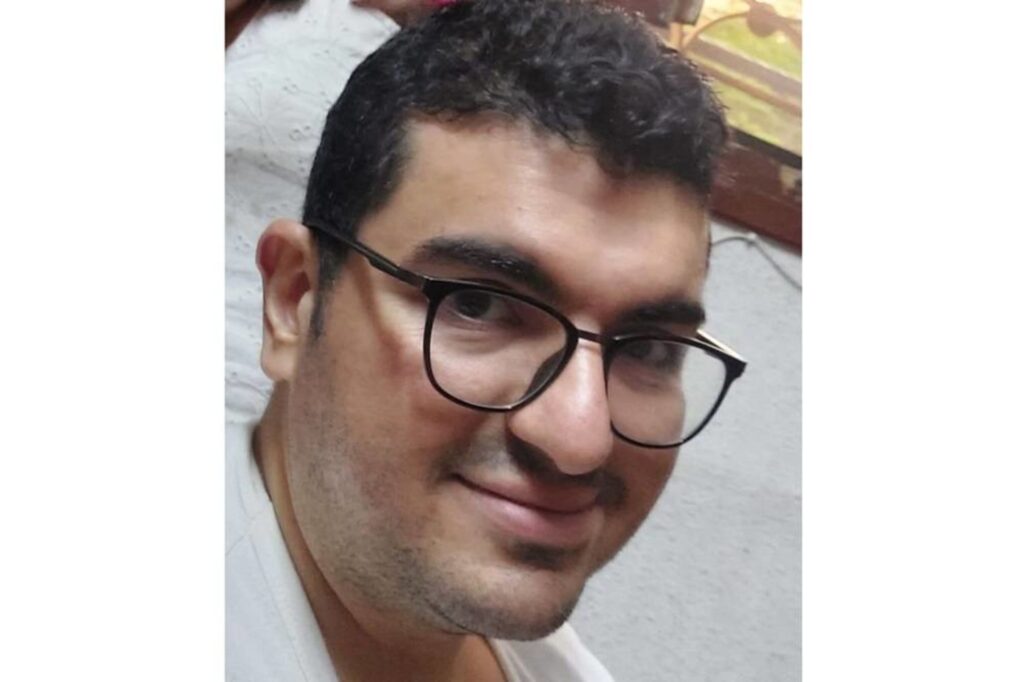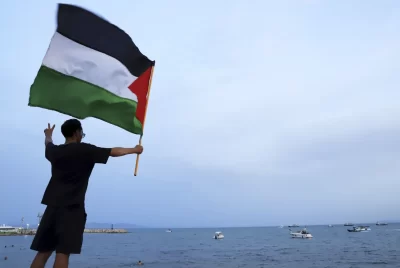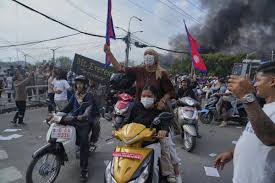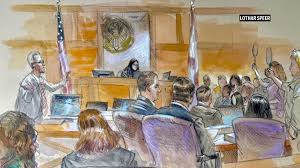
It was the call Shaymma Alloh had been dreading, the news from Gaza she hoped would never come: The house where 26 members of her family were sheltering was hit by a missile strike.
Among the four confirmed deaths from the strike late Saturday was her 36-year-old brother, Hammam Alloh, a renowned physician who stayed in northern Gaza to help treat patients at Shifa Hospital, which has been encircled by Israeli troops for days.
He and many of his relatives were staying at his in-laws’ home near the hospital because they had nowhere else to go. And that’s where surviving family members found their bodies. One was disemboweled by the blast, two more buried in rubble, she said.
The dead included Shaymma Alloh’s father and two in-laws, she told The Associated Press by phone Monday as she pieced together the tragedy from her home in the U.S. She declined to disclose her exact location out of concern about possible repercussions.
Her brother was a well-known kidney specialist at Gaza’s largest hospital and had conducted several interviews with American news outlet “Democracy Now!” during the recent fighting between Israel and Hamas. While thousands fled Shifa over the weekend after Israeli troops encircled the facility, Hammam chose to stay behind as did hundreds of patients and displaced people who were seeking safety on the hospital’s grounds.
The doctor’s final days and violent death go to the core of battling narratives over how the war is conducted. Israel says it is striking Hamas fighters, while trying to avoid harm to civilians, and alleges that Hamas uses civilians as human shields. But its airstrikes and shelling, in retaliation for Hamas’ deadly Oct. 7 attack on Israel, have also killed thousands of women and children in Gaza. Palestinians and rights groups accuse Israel of recklessly harming civilians.
Last month, Israel urged all Palestinians to evacuate to the southern part of Gaza as it launched a ground invasion. Israel has since agreed to open daily windows during which civilians can flee northern Gaza along two main roads.
But tens of thousands of people remain in the north. Israel continues to strike what it says are militant targets across the territory, often killing civilians.
According to Shaymma, her entire extended family was staying with her brother at their in-laws’ house, a 10-minute walk from the hospital, when the airstrike they blamed on Israel hit. They had no relatives or friends in the south who could house them.
She learned of the attack from her Qatar-based sister, who called after hearing that the neighborhood had been hit, she said.
After failing to reach her brother or her father, Mahmoud, she finally got in contact with her mother, Haifa, who was hiding in an adjacent building with female relatives. They were frozen with shock and fearful that another strike could come.
Eventually her mother was convinced to go into the upstairs room of the home to look for male relatives. That’s where she found Hammam’s body in the rubble, Shaymma said, retelling what she could of her mother’s story. With him were two men who were gravely wounded.
Shaymma said she was not able to provide the exact location of her in-laws’ house as she has never been there. The Israeli army said it is only able to comment on individual strikes if provided with coordinates.
More than 11,000 Palestinians, two-thirds of them women and minors, have been killed since the war began, according to the Gaza Health Ministry, which does not differentiate between civilian and militant deaths. The vast majority have been killed in Israeli airstrikes. The ministry said it was forced to temporarily halt its count Friday because of the difficulty of collecting information.
At least 1,200 people have died on the Israeli side, mostly civilians killed in Hamas’ Oct. 7 assault. Palestinian militants are holding nearly 240 hostages seized in the raid. The military says more than 40 soldiers have been killed in ground operations in Gaza.
Throughout Sunday, Shaymma tried contacting several aid groups, including the Red Cross and Doctors Without Borders, in an attempt to get medical treatment for the two wounded male relatives. One had a deep neck wound, and both struggled to walk. She said she was told no ambulances could come to the area because it was too dangerous.
Then on Monday morning, the Israeli army made contact. She said a relative received a phone call telling the family to leave the house and head south waving a white flag.
She said her mother was distraught by the idea of leaving loved ones unburied and scared that the family might be targeted on the journey. But her daughter convinced her otherwise.
“You have to think about the living,” Shaymma said, recounting the conversation. “If you take the other choice, you might be bombed.”
Her female relatives and the two injured in-laws left the neighborhood Monday, she said, turning their phones off before they left to save battery power.
She made contact with her sister-in-law, Noor, on Monday evening and discovered they had not traveled far. They were at Shifa Hospital.
While passing by the hospital, she said her family had been warned by people sheltering there that the Israeli army was shooting at Palestinians fleeing south. So they decided to stay.
“While it’s not completely safe,” she said, “I am glad they are OK.”




